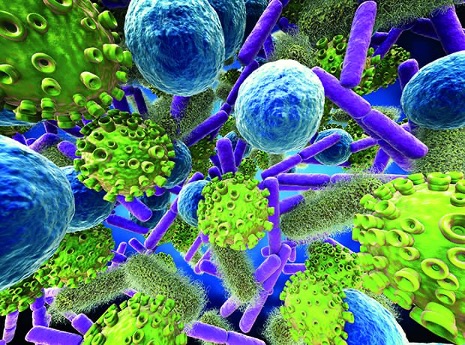Study reveals mobile phone data can help map the spread of pathogens
July 9, 2024
Source: drugdu
 318
318
 Pneumococcus is the leading cause of pneumonia, meningitis and sepsis worldwide
Pneumococcus is the leading cause of pneumonia, meningitis and sepsis worldwide
A study, published in Nature, has revealed a new way to map the spread and evolution of pathogens, as well as their response to vaccines and antibiotics, using anonymised mobile phone data, to help predict and prevent future outbreaks.
The study involved researchers from the Wellcome Sanger Institute, the University of the Witwatersrand, the National Institute for Communicable Disease, South Africa and the University of Cambridge, as well as partners from the Global Pneumococcal Sequencing project.
Infectious diseases, including tuberculosis, HIV and COVID-19, have multiple strains or variants that circulate simultaneously.
The leading cause of pneumonia, meningitis and sepsis worldwide, the bacterium Streptococcus pneumoniae (pneumococcus) has over 100 types and 900 genetic strains globally.
Researchers integrated genomic data from 6,910 pneumococcus samples collected in South Africa between 2000 and 2014 with anonymised human travel patterns collected by Meta2 using mobile phone data to see how the bacteria could move between regions and evolve over time.
Using computational models, the team found that pneumococcal strains take roughly 50 years to fully combine throughout South Africa’s populations, largely due to localised human movement patterns.
Despite the pneumococcal vaccine in 2009 against certain types of bacteria reducing the number of cases caused by those types, other non-targeted strains of these bacteria gained a 68% competitive advantage, as well as an increase in becoming resistant to antibiotics, including penicillin, suggesting that the vaccine-linked protection against antibiotic resistance is temporary.
According to the World Health Organization, antimicrobial resistance is one of the top ten global public health threats facing humanity. It occurs when bacteria, fungi and parasites change and adapt to antibiotics over time.
The new research could help to improve vaccine development when targeting the most harmful strains of bacteria and “could be applied to other regions and pathogens to better understand and predict pathogen spread in the context of drug resistance and vaccine effectiveness,” said the first author of the study, Dr Sophie Belman, former PhD student at the Wellcome Sanger Institute.
https://pharmatimes.com/news/study-reveals-mobile-phone-data-can-help-map-the-spread-of-pathogens/
By editorRead more on
- China Sino Biopharmaceutical Signs Exclusive Licensing Agreement with Sanofi for Rofalcitinib March 4, 2026
- Gan & Lee Pharmaceuticals’ new PROTAC drug GLR2037 tablets have been approved for clinical trials to enter the field of prostate cancer treatment March 3, 2026
- AideaPharmaceuticals plans to raise no more than 1.277 billion yuan through a private placement to focus on the global clinical development of innovative HIV drugs March 3, 2026
- Giant Exits! Its Star Business Acquired March 3, 2026
- Focusing on cardiovascular and cerebrovascular diseases! OpenMediLead Medical Intelligence Dual Engines Launch Internal Testing, Connecting Drug Development and Clinical Diagnosis in a Closed Loop March 3, 2026
your submission has already been received.
OK
Subscribe
Please enter a valid Email address!
Submit
The most relevant industry news & insight will be sent to you every two weeks.



